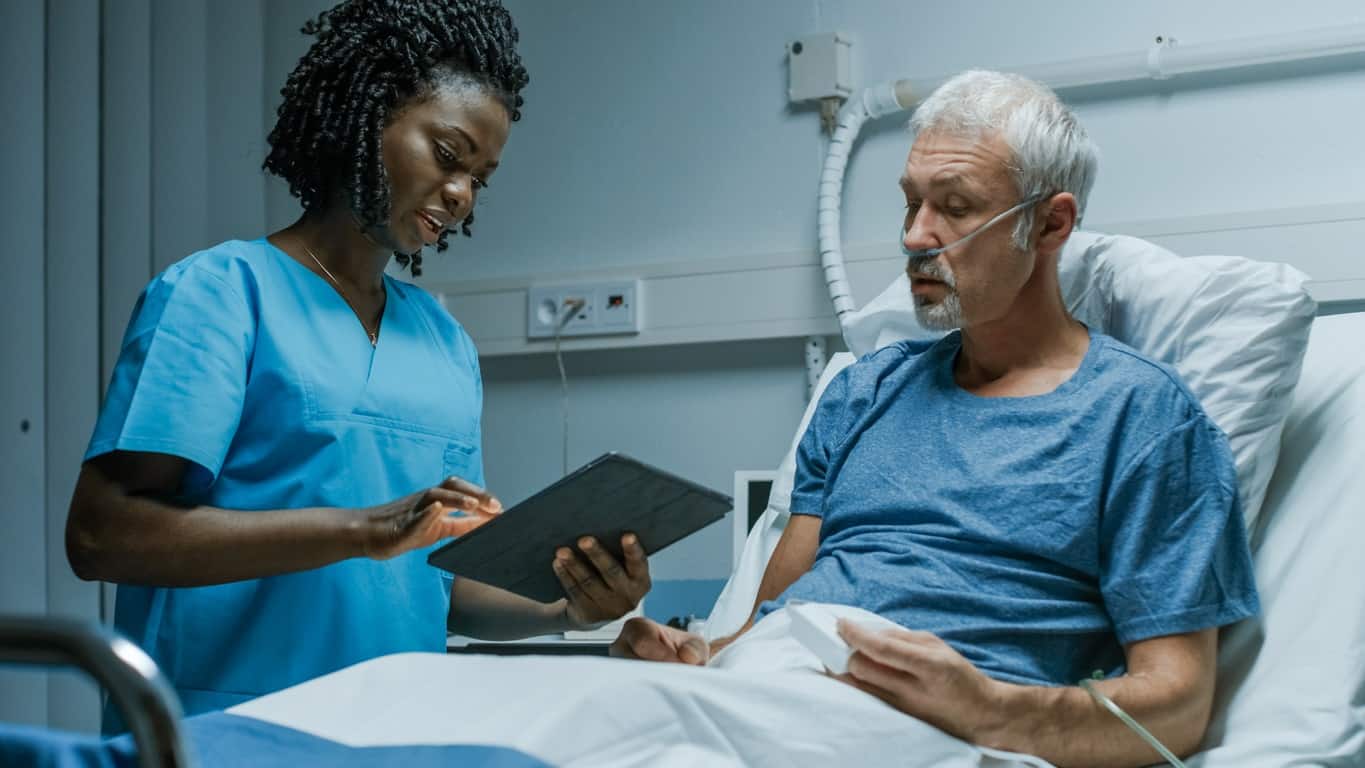Regional One Health’s Center for Innovation is helping evaluate a new product that aims to improve how nasogastric tubes are secured.
Aspisafe Solutions is the newest participant in the center’s Access Incubator program, and will test its NG Guard to see if it helps prevent dislodgements and pressure injuries associated with nasogastric tubes.
It’s the latest example of the work being done through the Access Incubator, which gives innovators a chance to evaluate their products and ideas in a real-world clinical setting.
Nasogastric tubes can be an essential part of patient care after surgery or a traumatic injury, but they can also be uncomfortable and easy to dislodge.
Regional One Health’s Center for Innovation is helping evaluate NG Guard, a product designed by New York-based startup Aspisafe Solutions to improve patient comfort and better secure nasogastric tubes.

Nasogastric tubes can be uncomfortable for patients, leading to pressure injuries and dislodgements. Regional One Health’s Center for Innovation is helping evaluate a new device to improve how the tubes are secured.
Center for Innovation Director Alejandra Alvarez said Aspisafe recently became the newest participant in the center’s Access Incubator to evaluate NG Guard in a real-world clinical environment: Regional One Health’s trauma acute care and trauma step-down units.
“Our Access Incubator is designed to validate the accuracy and efficacy of new products, and Aspisafe wants to evaluate whether the NG Guard can help prevent dislodgements and pressure injuries related to the NG tube,” she said. “We’re working with nurses in trauma step-down and trauma acute care to evaluate it as an alternate means of securing NG tubes on patients.”
Nurse Manager Jennifer Moore embraced the chance to explore a new way to care for patients.
Moore said nasogastric tubes are common among patients in the trauma units as a means of delivering feedings and medication and to suction the stomach. The tube goes in a patient’s nose, down their throat, and into their stomach.
Traditionally, Moore said, nurses have secured the tube using medical adhesive.
“It’s uncomfortable for the patient, and it’s common for patients to dislodge their tube,” she said. “We would have to readjust the tube, and sometimes we would have to do another X-ray or even reinsert the tube. That causes confusion and discomfort for the patient.”

“This is an example of how participating in our Access Incubator program can help an entrepreneur evaluate their product in a real-world environment so they can fine-tune it and make changes to improve its efficacy,” Center for Innovation Director Alejandra Alvarez said.
According to Aspisafe, a dislodged tube can even put patients at risk of significant setbacks like malnutrition, unnecessary sedation, the use of restraints, and increased length of stay.
They noted up to 40 percent of patients pull out their tube. Furthermore, using medical adhesive to keep the tube in place can increase the risk of pressure injuries to the skin on the face.
The company created NG Guard with that in mind.
The device uses an ergonomic foam liner, soft straps and a Velcro closure to make it easy to use for nurses and more comfortable and secure for patients. It is compatible with any size nasogastric tube, and the main contraindications are when a patient also has a tube in their mouth or if they have facial injuries that could interfere with the device.
Alvarez said Aspisafe’s participation in the Access Incubator program will include two phases: evaluation of the product itself, and then a retrospective study to see if the NG Guard leads to decreased dislodgements, fewer pressure injuries, and an overall improved patient experience per its intended design.
So far, Moore said, the experience has been positive.
“The nurses love it because it’s easy to put on and monitor,” she said. “The straps are soft and we don’t have to use all that tape, so patients are much more comfortable. Our patients also say they can move around more because they don’t have to worry about their tube going anywhere.”
Moore added nurses can easily adjust the plastic that holds the tube in place so it isn’t always sitting in one place, thereby reducing the risk for pressure injuries.

This image, provided by Aspisafe Solutions, shows how the NG Guard is placed on a patient to improve comfort and better secure their nasogastric tube.
Alvarez said the Center for Innovation is excited for the opportunity to help Aspisafe evaluate its product while also positively impacting patients and nurses.
“This is another example of how participating in our Access Incubator program can help an entrepreneur evaluate their product in a real-world environment so they can fine-tune it and make changes to improve its efficacy,” she said.
“It allows us to continue building Memphis’ innovation ecosystem. We’re bringing innovators from all over the country, and they’re coming here because of the access we can offer them.”
To learn more about the Center for Innovation, visit https://innovation.regionalonehealth.org/
[/fusion_text][/fusion_builder_column][/fusion_builder_row][/fusion_builder_container]
